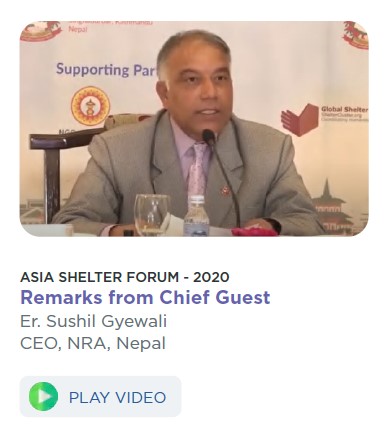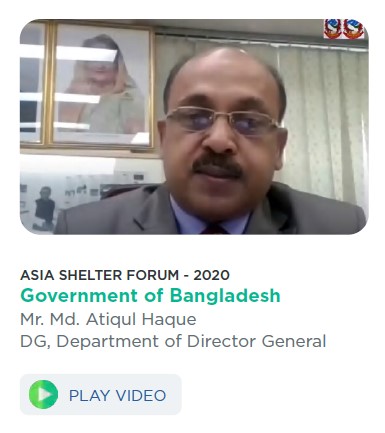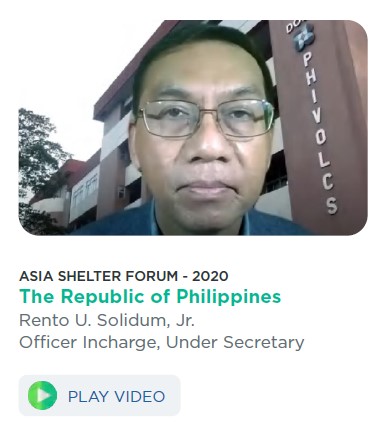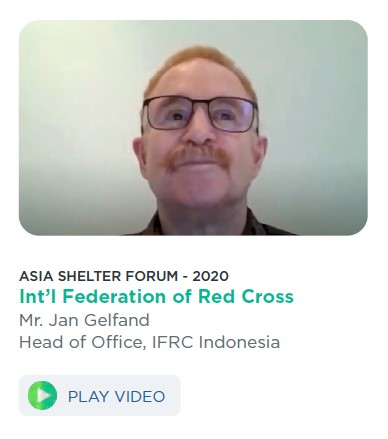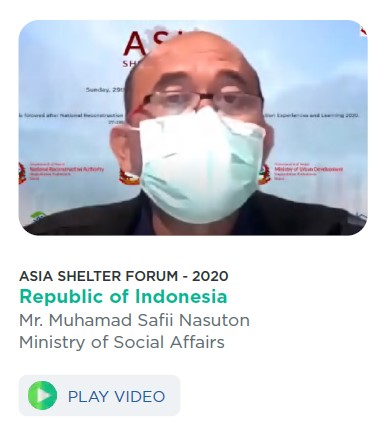Mr. Gyewali appreciated the forum’s capacity to know about activities of ASF in networking and extending of learnings by various institutions working in shelter and related components. In the 2015 earthquake, 8790 people died, almost 22,300 were injured, there was damage to 800,000 houses, 10,000 schools, 1,200 health facilities, 415 govt buildings, 300 local governments, 1500 water supply schemes, and 2200 heritage monuments and monasteries. The Post Disaster Needs Assessment estimated an economic loss of 7.1 billion USD.
Five and a half years after the earthquake, the progress has been remarkable. Nepal has received huge support, locally and internationally. NRA has completed 80% of the private housing reconstruction. There were many challenges in the reconstruction process as the NRA was moving forward for instance the country itself was transitioning from unitary to federal political system, constitution drafting process, general election including difficult geographical terrain of the country, lack of human and financial resources among others. Nepal has gained extensive lessons, especially in shelter. Some of the major lessons are as follows:
- Owner-driven reconstruction and community settlement approach are key approaches
- Special purpose vehicle like the NRA is needed for guiding, leading, coordination, and ensuring the reconstruction process
- Post Disaster Needs Assessment and Post Disaster Recovery Framework (PDNA and PDRF): the overall frameworks are vital for resource allocation and timely completion of recovery tasks
- Tranche-based financial assistance, blended with STA and monitoring are the main building blocks of the success of the reconstruction program
- Engaging local governments not only helps in faster recovery, but ensures sustainability and institutional memory of the learnings
- Urban housing recovery is more complex and more time consuming than rural housing recovery
- Opportunity of socio-economic recovery embedded in housing recovery program
- On site development training is a huge opportunity for employment of the local population. 100,000 skilled masons were trained and almost 166,000,000 NPR was gained
- Resettlement of vulnerable households shall be considered with multiple optional; 299 vulnerable settlements have been relocated
- Land is an integral component of housing reconstruction
- Technological considerations and Build Back Better are key to successful housing recovery
There are many more lessons that need to be shared. For this, the documentation process is ongoing, through various routes. The NRA timeline is till the end of 2021, after which it will be handed over to concerned government agencies. The Parliament has provided the legal framework for establishing the National Disaster Risk Reduction Management Authority (NDRRMA). The NRA has already started collaborating with the NDRRMA so that the NRA’s learnings and remaining tasks can be handed over to NDRRMA smoothly. He concluded his closing remarks by stating that intensive discussion will be required on multihazard Shelter Response, Localization, Urban, Retrofitting and Area Based/ Settlement Approach in the next ASF 2021.

